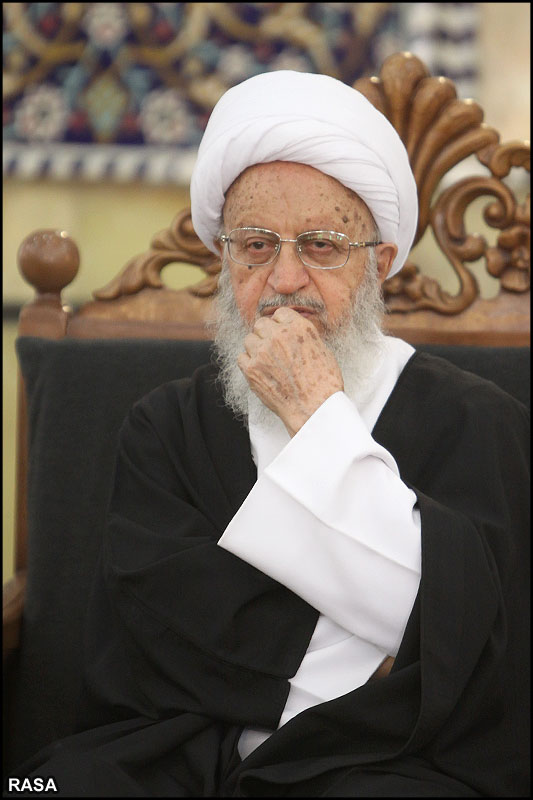
RNA – Grand Ayatollah Naser Makarem-Shirazi has attended the opening ceremony of the Khatam al-Anbiya (S) Complex project and the laying of the cornerstone of the Shiraz Quran Hall in the south-western Iranian city of Shiraz.
He explained that God Almighty bestowed His grace and with the aid of many charitable people, the Khatam al-Anbiya (S) Complex project was able to be constructed. This complex contains a mosque, seminary, Quranic centre and library. Ayatollah Makarem-Shirazi laid the cornerstone for the 2,500-seat Shiraz Quran Hall.
Ayatollah Makarem-Shirazi explained that this project was completed due to the charitable aid of the people of the city of Shiraz and the province of Fars. This Quranic hall will be unique in all of Iran and it will have a lasting impact on the city of Shiraz. If the government pays for a share of the cost, the Quranic Hall will be able to open sooner.
His Eminence suggested that the Shiraz Quran Hall be named after Lady Fatimah az-Zahra (S). He stated that by naming the Shiraz Quran Hall after this great lady, it will protect the city and province from tribulations and will protect the health of the people and allow them to properly train their children and youth according to the commandments of Islam.
In another part of his speech, Ayatollah Makarem-Shirazi stated that the meaning of the question of life and death is different among many average people than how the Quran explains and interprets it. Prophetic narrations (ahadith) state that after death everyone’s records are closed except for three groups who’s records will remain open and their blessings will increase.
The first group are those who give sadaqah al-jariyah or continuous charity. This charity will provide the believer with endless rewards even in the afterlife as the effect of their charity remains in the world after they pass away. For example, when someone gives charity towards a mosque, house, library etc, their record remains open even after hundreds of years after they pass away.
The second group are the people of knowledge who’s knowledge remains after they pass away. Examples of this include Shaykh Tusi, who was a renowned scholar who lived over one thousand years ago but now we can consider him as a living person because the effects of his knowledge remain. Other scholars who’s knowledge remains with us include Shaykh Kulayni, Shaykh Mufid, and Abu Ali ibn Sina (Avicenna), who are among those who’s records of good deeds are still open.
The third group are those that all of mankind can accomplish – those who raise pious and righteous children who after their parents passing, remain among society and continue to act righteously. The records of this righteous child’s parents will also remain open and the blessings of their actions during their life will be transferred to them in heaven.
111/112